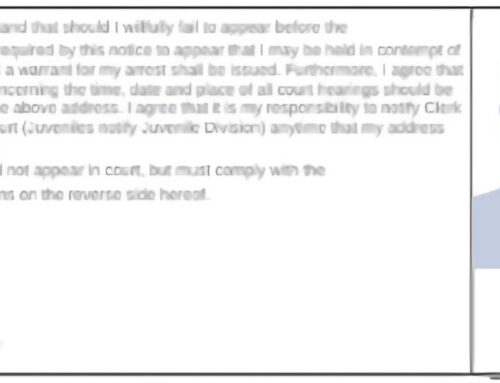What is a motion to suppress?
A motion to suppress is a common criminal procedure legal motion filed by a defendant in a criminal case. It is typically filed before the trial begins and is used to ask the court to exclude specific evidence from being presented at the trial. The defendant may argue that the evidence in question was obtained in violation of their constitutional rights, such as the right to be free from unreasonable searches and seizures. A motion to suppress can also be filed to exclude a defendant’s statements based on the argument that the statements made by the defendant were obtained illegally or in violation of their constitutional rights. If the motion is successful, the court will suppress the evidence, which means the prosecutor cannot use it against the defendant in the criminal case. This can significantly impact the case’s outcome, weakening the prosecution’s case and making it more difficult for them to obtain a conviction.
What is the exclusionary rule?
The exclusionary rule is a legal principle used in the United States criminal justice system. It holds that evidence that is obtained in violation of a defendant’s constitutional rights cannot be used against them in a criminal trial. In other words, if the police obtain evidence against a defendant in an unlawful manner, such as by searching without a valid warrant, that evidence may be excluded from the criminal case and not be used to secure a conviction. The exclusionary rule protects individuals’ rights and prevents the government from using unlawful or unfair means to gather evidence against them. It is a cornerstone of the American criminal justice system and is rooted in the Fourth Amendment to the Constitution, which protects against unreasonable searches and seizures.
Are law enforcement officers always required to obtain a search warrant before searching?
In general, law enforcement officers must obtain a search warrant before searching unless certain circumstances allow them to search without a warrant. For example, if an officer has probable cause to believe that there is evidence of a crime in a particular location, and there are exigent circumstances that make it impractical to obtain a warrant, the officer may be able to search without a warrant. However, this is not always the case, and it is up to the courts to determine whether a search was lawful based on each case’s specific facts and circumstances. Generally, it is always best for police officers to obtain a search warrant before searching a defendant, as this will help protect their interests and avoid potential legal challenges.
Under what circumstances can a police officer search without obtaining a warrant?
There are certain circumstances in which a police officer can search a defendant without obtaining a warrant. For example, if an officer has probable cause to believe that there is evidence of a crime in a particular location, and there are exigent circumstances that make it impractical to obtain a warrant, the officer may be able to search without a warrant. Exigent circumstances are urgent or pressing situations requiring immediate action, such as when there is a risk that evidence will be destroyed or someone’s safety is in danger.
In addition, there are certain other situations in which a search may be conducted without a warrant, such as when an individual voluntarily consents to a search or when an officer conducts a search incident to arrest. However, these exceptions to the warrant requirement are narrowly defined and are subject to strict legal limitations.
If the police do not have a warrant, do they need my consent to search me or my property?
If the police do not have a warrant, they will need your consent to search you or your property. However, there are certain exceptions to this rule. For example, if an officer has probable cause to believe that there is evidence of a crime on your person or your property, and there are exigent circumstances that make it impractical to obtain a warrant, the officer may be able to search without your consent
In addition, there are other situations where a search may be conducted without your consent, such as when an officer conducts a search incident to arrest. However, these exceptions to the consent requirement are narrowly defined and are subject to strict legal limitations. It is always best to consult with a knowledgeable criminal defense lawyer if you have any questions or concerns about your rights in a particular case.
Is a warrantless police search valid if the officers obtain my consent?
A warrantless police search may be valid if the officers obtain your consent, but there are certain factors that the courts will consider in determining whether your consent was voluntary and valid. For example, the courts will consider whether the officers advised you of your right to refuse consent and whether you were under any duress or coercion at the time you gave your consent. The courts will also consider whether you had a reasonable expectation of privacy in the searched place or thing. If the courts determine that your consent was involuntary or otherwise invalid, the evidence obtained during the search may be excluded from the trial. An experienced criminal defense attorney can analyze your case to determine if you validly gave consent.
How do I know if a police search was valid or not?
In general, a police search is considered valid if it was conducted in accordance with the Fourth Amendment to the United States Constitution. The Fourth Amendment protects individuals against unreasonable searches and seizures by the government. To conduct a valid search, officers must generally have a warrant issued by a judge unless certain exceptions apply. The warrant must be based on probable cause, which means that the officers must reasonably believe that there is evidence of a crime in the place to be searched.
What grounds are motions to suppress statements based on?
A motion to suppress statements is typically filed when you believe that the statements you made were obtained in violation of your constitutional rights. This can happen in a variety of situations, but some common examples include the following:
- Your statements were made while they were in custody, but you were not read your Miranda rights.
- Your statements were made as a result of police coercion or intimidation.
- Your statements were made while you were under the influence of drugs or alcohol, and you were not mentally competent to make a voluntary statement.
- Your statements were made in response to a question that was asked in violation of your right to remain silent.
In any of these situations, the defendant may argue that their statements should not be used as evidence against them in the trial. because they were not made voluntarily. If the trial court agrees, the statements will be suppressed and not be allowed to be used as evidence at trial.
Can I file a motion to suppress in my case?
If you are unsure whether a motion to suppress can be filed in your case, it is always best to consult an attorney. An experienced Miami motion to suppress attorney can review the facts and circumstances of the search and advise you of your rights. If a search or police questioning were conducted in violation of your constitutional rights, an attorney may be able to file a motion to prevent the prosecutor from introducing the evidence or statements at trial. When facing a criminal charge, a successful motion to suppress evidence can often mean the difference between a dismissal and a conviction.
This website is designed for general information only. The information presented at this site should not be construed to be formal legal advice or the formation of an attorney client relationship with our Miami law office.
THERE ARE THOUSANDS OF ATTORNEYS IN MIAMI-DADE COUNTY. ALWAYS INVESTIGATE A MIAMI CRIMINAL DEFENSE LAWYER‘S QUALIFICATIONS AND EXPERIENCE BEFORE MAKING A DECISION ON HIRING A DEFENSE ATTORNEY








